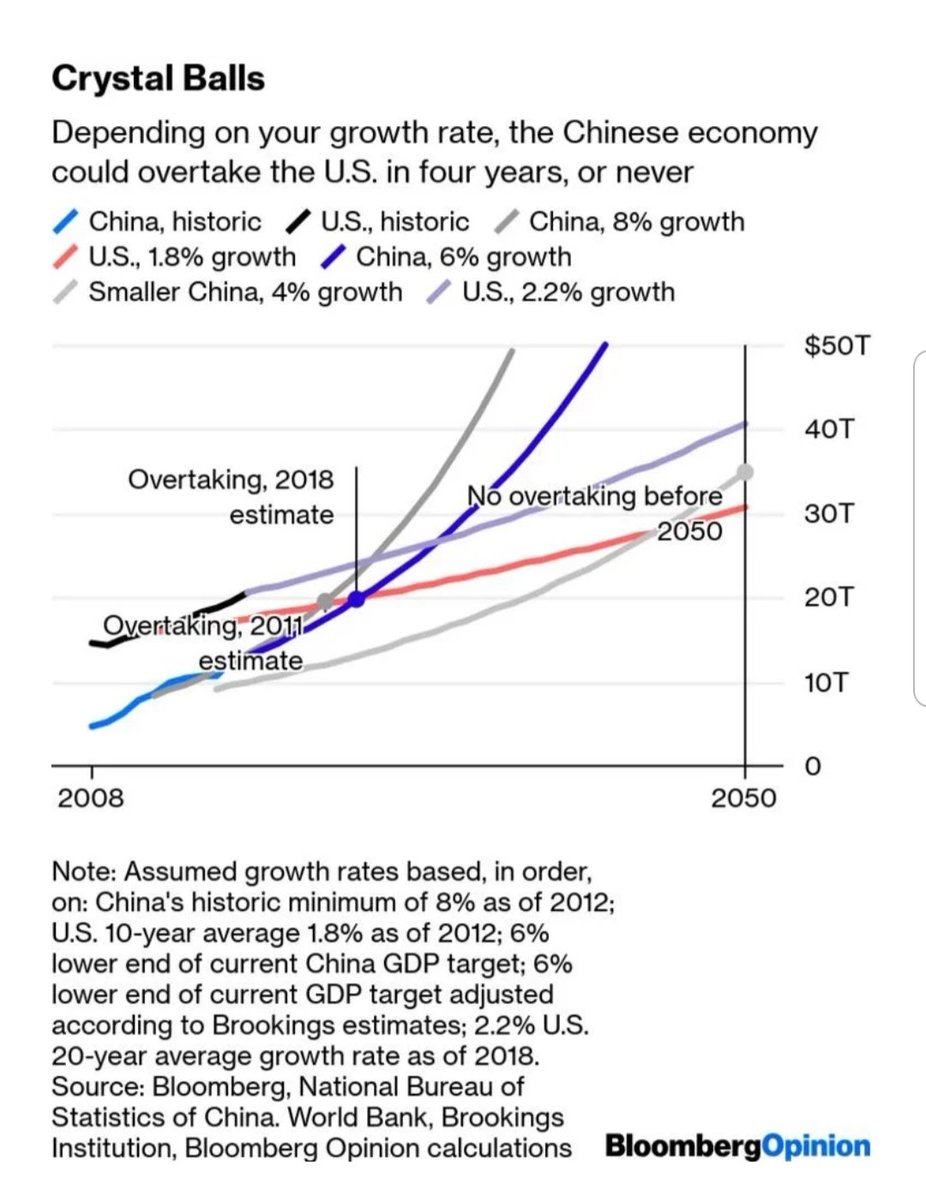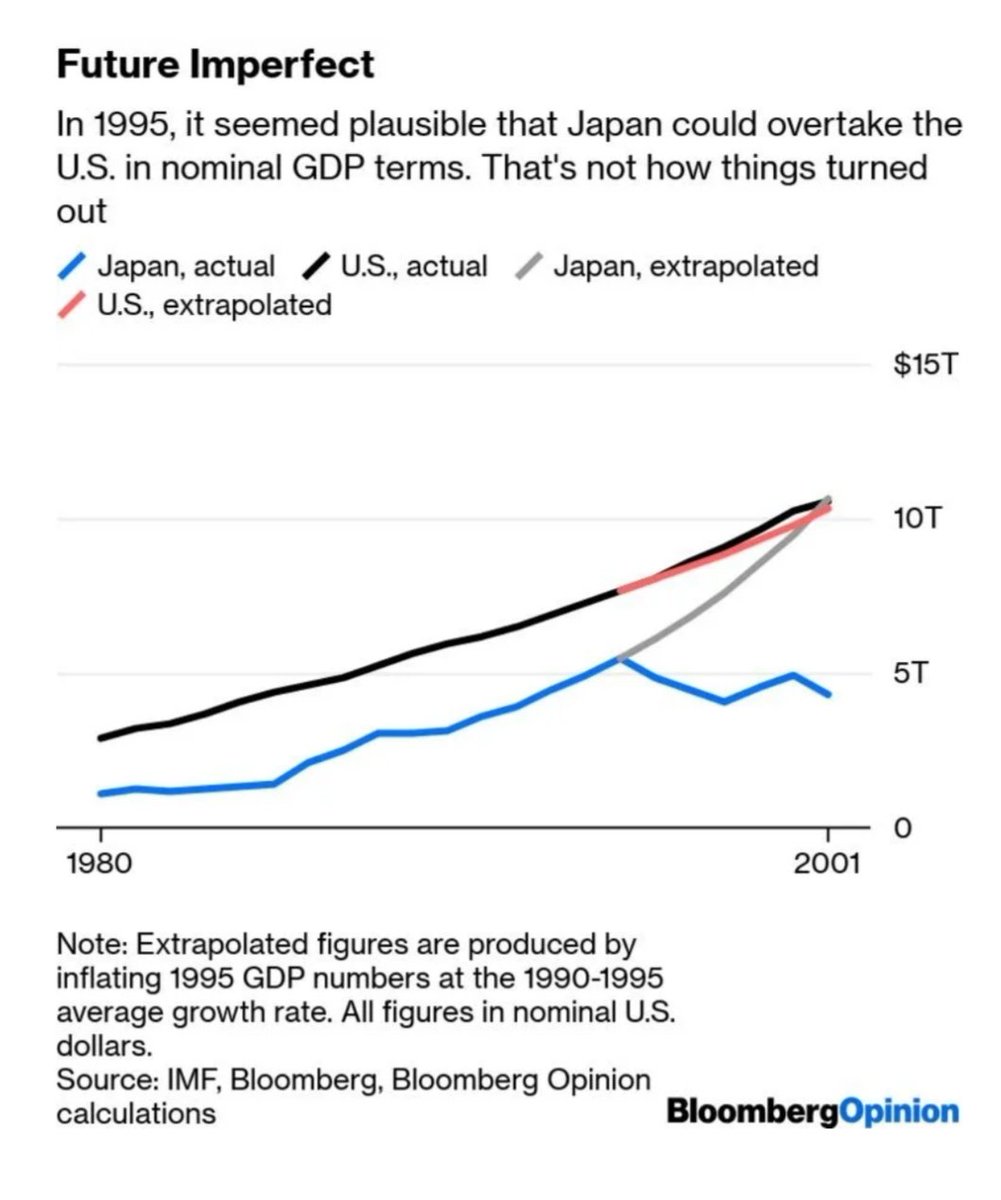"China& #39;s economy will overtake the U.S." is the Zeno& #39;s tortoise of high-level geopolitics. https://twitter.com/zlj517/status/1200499150879543296">https://twitter.com/zlj517/st...
In 2010, Standard Chartered said it would happen in 2020.
In 2014, IHS Markit said it would happen in 2024.
In 2019, China& #39;s Ministry of Foreign Affairs is saying it will happen in 2029.
See the pattern? https://www.bloomberg.com/opinion/articles/2019-03-08/will-china-overtake-u-s-gdp-depends-how-you-count">https://www.bloomberg.com/opinion/a...
In 2014, IHS Markit said it would happen in 2024.
In 2019, China& #39;s Ministry of Foreign Affairs is saying it will happen in 2029.
See the pattern? https://www.bloomberg.com/opinion/articles/2019-03-08/will-china-overtake-u-s-gdp-depends-how-you-count">https://www.bloomberg.com/opinion/a...
Of course it may well happen! It will almost certainly happen if China escapes the middle income trap before it succumbs to an aging population, too much debt, and lacklustre productivity growth.
If.
If.
Now China is already ahead if you adjust for the cost of living, but at market exchange rates it& #39;s still way behind.
And the "drawing lines on a chart using recent growth rates" is a really bad guide to the future.
And the "drawing lines on a chart using recent growth rates" is a really bad guide to the future.
Lots of people used "drawing lines" to argue Japan would overtake the U.S.
This was a mainstream, respectable view from the 1960s to as late as the mid-1990s, but it seems absurd now.
Did people not see the problems of an ageing population, debt buildup, etc?
Well, quite.
This was a mainstream, respectable view from the 1960s to as late as the mid-1990s, but it seems absurd now.
Did people not see the problems of an ageing population, debt buildup, etc?
Well, quite.
Beyond that though, it& #39;s just an irrelevant question. This isn& #39;t an economic dick-measuring contest!
Countries get power and influence in the world not by being the biggest and cowing their rivals single-handedly, but by building *much bigger* coalitions of the like-minded.
Countries get power and influence in the world not by being the biggest and cowing their rivals single-handedly, but by building *much bigger* coalitions of the like-minded.
Both China and the U.S. are in nationalistic moments so neither is really doing that at the moment very well. Beijing is starting to play this game a bit more (cf. Brazil, Germany, India) but keeps tripping over its own authoritarian instincts.
Washington has hugely greater political capital in terms of global coalitions and institutions, but seems determined to squander it under Trump.
That& #39;s ultimately how this plays out, though.
That& #39;s ultimately how this plays out, though.

 Read on Twitter
Read on Twitter



